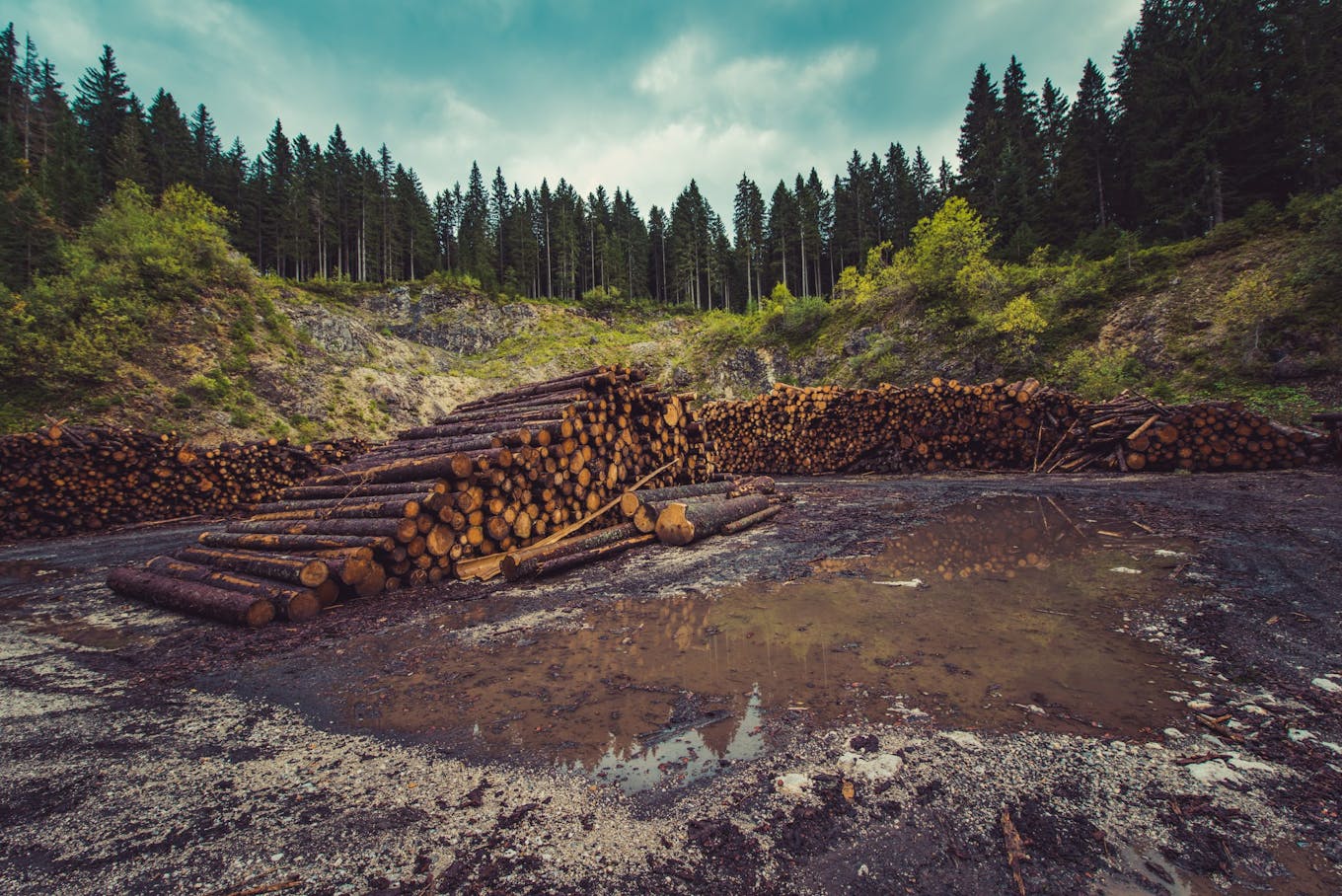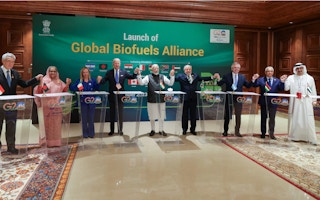The Global Biofuel Alliance was launched last month by the Indian G20 presidency. The new grouping, which include top producers Brazil and the United States, aims to extend and develop markets for sustainable biofuels and has been one of India’s key priorities while hosting the summit as it pushes towards its net-zero aim.
To continue reading, subscribe to Eco‑Business.
There's something for everyone. We offer a range of subscription plans.
- Access our stories and receive our Insights Weekly newsletter with the free EB Member plan.
- Unlock unlimited access to our content and archive with EB Circle.
- Publish your content with EB Premium.
Brazil, US and India together account for 85 per cent of ethanol (common biofuel) production.
The alliance partners will drive net-zero targets by decarbonising vehicle emissions and heating mediums. Eco-friendly fuel practices will be shared across borders through technological advancement, said the Indian presidency. It will form a virtual marketplace for countries, and stakeholders to regulate the demand and supply of biofuels.
At present, 19 countries – including Singapore, Argentina, South Africa and the United Arab Emirates – and 12 international organisations – inclusive of the World Bank, Asian Development Bank and World Economic Forum – have joined the alliance.
Indian Prime Minister Narendra Modi called the forging of the alliance a watershed moment towards sustainability and clean energy.
What are biofuels?
Biofuels are acquired from the waste of plants, agriculture or industry. Sugarcane, rice and corn are major feedstock used in the production of the fuel.
While biofuels are generally considered environmentally sustainable, there are concerns and dilemmas surrounding whether it is right to divert farmland for biofuels production to the detriment of food supply.
Biofuels have a long history. They were originally employed for heating purposes, but today they have a prominent role as a cleaner alternative in the transportation sector. Notable examples of biofuels include ethanol, biodiesel, and renewable diesel.
What are the key targets of the Global Biofuel Alliance?
The Global Biofuel Alliance is positioning itself as a key knowledge hub for biofuels, with the primary goal of expanding biofuel usage, energy analyst Purva Jain of Institute for Energy Economics and Financial Analysis (IEEFA) told Eco-Business.
The alliance seeks to ensure the affordability and accessibility of biofuels and emphasises sustainability as a core principle, promoting responsible biofuel deployment.
To achieve these objectives, the alliance needs to look at the diversification of fuel sources. Alternative options such as algae, biomass, and various renewable energy sources will be explored to ensure a stable and environmentally friendly energy future.
The alliance has also committed to enhancing the efficiency of existing biofuels through the adoption of advanced technologies and conservation measures. This approach is essential in reducing the environmental impact associated with biofuel production while bolstering the economic viability of renewable energy sources.
Brazil’s President Luiz Inácio Lula da Silva described the joining of the India-led grouping as Brazil’s “happiest decision.” He said it underscores Brazil’s unwavering commitment to ethanol production as a sustainable alternative to conventional oil.
Why is India spearheading this initiative?
India has asserted its position as a voice of the Global South. Recent geopolitical disruptions such as the Russia-Ukraine conflict and the Covid-19 pandemic have had adverse effects on developing nations. In response, India has taken a leadership role in promoting global environmental sustainability through its G20 presidency. This allows the country to solidify its status as a global power.
India’s National Biofuels Policy amended in 2022, its specific targets to achieve a 20 per cent ethanol blending rate as well as the construction of 500 biogas plants under the Gobardhan scheme, represent India’s recent efforts in pushing for the expansion of the use of renewables. IEEFA’s Jain said that these are all significant policies that lay the foundation for the establishment of the new alliance and demonstrates India’s commitment.
Additionally, the establishment of the Global Biofuel Alliance is anticipated to assist India in meeting its carbon-neutral objectives by 2070.
The use of biofuels derived from various feedstocks is expected to boost demand, which in turn could contribute to increased income for farmers and the creation of sustainability-focused jobs, benefiting India’s overall ecosystem, said Jain.

Deforestation for increased biofuel production is an environmental concern Image: Transport & Environment
Limitations
The “food versus fuel” debate is a significant concern surrounding the Global Biofuel Alliance. Biofuel production relies on crops and could potentially divert agricultural resources away from food production. The ongoing Russia-Ukraine conflict has intensified these concerns, as it has already led to food shortages in certain regions.
India has also banned rice exports due to a scarcity of this food crop. Since rice is a major source of ethanol, the increased demand for biofuels could worsen existing food shortages. The availability of feedstock for biofuel production depends on factors such as climate conditions, land availability and competition with other agricultural needs.
Building the necessary infrastructure for biofuel production requires substantial investment and may lead to deforestation, as fertile land is converted for crop cultivation. Furthermore, the elevated use of water resources for out-of-season crop production to meet biofuel demands is an environmental hazard.
In addressing these limitations, Jain emphasised optimising land use. She proposed exploring alternative sources for biofuel production, such as utilising waste products like animal and human waste, rather than relying solely on feedstock derived from crops. This approach could help mitigate some environmental and food security concerns with biofuel production.
Other initiatives launched at G20
The international gathering in New Delhi was attended by representatives from 125 nations and convened for two days, resulting in the launch of several initiatives centred around environmental sustainability.
“Lifestyles for Sustainable Development” (LiFE) is an initiative aimed at promoting sustainable production and consumption patterns among individuals. It seeks to encourage responsible and eco-conscious lifestyles on a global scale.
A new innovation centre will serve as a hub for the dissemination of knowledge and insights on the latest advancements in the field of green hydrogen. It operates within the purview of the International Solar Alliance, an organisation comprising more than 100 member countries, emphasising the global collaboration required for the advancement of green hydrogen technologies.
Indian authorities also introduced a Technical Assistance Action Plan (TAAP), an initiative that focuses on sustainable finance and capacity building. Support will be extended to micro, small, and medium enterprises (MSMEs) in their efforts to adopt sustainability practices. It addresses the aspect of financing green funds, highlighting the role of financial mechanisms in driving sustainable development. The plan encompasses a comprehensive approach towards achieving sustainable development goals while emphasising management strategies.





















